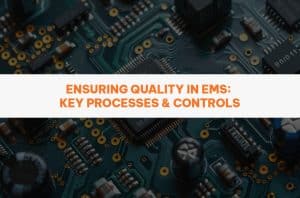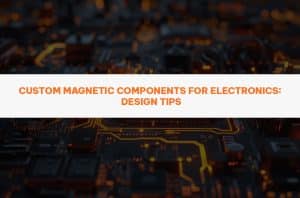In electronic manufacturing, small details can yield big results. A tiny solder joint or a protective coating, the thickness of a piece of paper, can be the difference between a product that lasts, and one that fails out in the field. As of late, two of the manufacturing processes—[Vapor Phase Soldering Services in India] and Conformal Coating—are getting greater visibility as they help improve product quality and reliability, and lifecycle performance.
What Is Vapor Phase Soldering?
Vapor Phase Soldering (VPS) is a casting process that uses the latent heat of a vaporized liquid to solder electronic components on PCBs. Rather than rely on heating using infrared or convection, VPS envelops the board in a cloud of vapor, creating a gas that creates consistent temperatures across each component.
The key advantage is accuracy—the vapor temperature never exceeds the boiling point of the assigned fluid—meaning there is no overheating of a delicate component, which may cause damage.
1. Flawless Temperature Control
Reflow ovens, where hotspotting and irregular heating are prevalent, cannot match VPS’s promise of consistent heating. Each component—large or small—is soldered in a controlled environment.
2. Improved Yields, Less Defectives
By eliminating temperature variations, VPS reduces problems such as cold joints, voids, and component stress. This directly means increased first-pass yields and less rework.
3. Backward Compatibility with New Components
As devices get smaller and employ heat-sensitive materials, VPS offers a less hazardous method to solder fine-pitch, high-density, and sensitive components without thermal damage.
4. Energy Efficiency
Since the process is intrinsically governed by the boiling temperature of the medium, there is no necessity for high energy to be used in maintaining temperature profiles. This renders it more environmentally friendly than conventional processes.
What Is Conformal Coating
After assembling a PCB, work’s not done. Environmental hazards—moisture, dust, corrosion, vibration—can quietly reduce product lifespan. [Conformal Coating Services in India] is a thin protective layer added to the entire assembly to protect it from such elements.
The coating is light and transparent and maintains functionality while providing durability.
- Consumer electronics where speed and consistency matter.
- Medical devices that need serious testing and certification.
- Industrial equipment with complex wiring and mechanical integration.
- IoT products that need custom enclosures and fast iteration.
Important Advantages of Conformal Coating
1. Protection from the environment
It protects electronics against humidity, salt spray, and chemical contamination. Products which must function outdoors, in automotive environments, or industrial applications particularly find value in this layer of protection.
2. Longer Product Life
Protecting solder joints and traces from corrosion, coatings greatly minimize field failures and maintenance.
3. Electrical Insulation
The coating diminishes the potential for shorts due to condensation or debris, allowing for stable operation under harsh conditions.
4. Flexibility in Application
Various techniques—spray, dip, brush, or selective coating—can be tailored based on design complexity and production quantities.
The Power of Combining Both
Individually, Vapor Phase Soldering and Conformal Coating each add tremendous value. Together, they cover two critical aspects of electronics manufacturing:
- Precision in Assembly: VPS ensures every component is soldered flawlessly, with minimal defects.
- Protection in the Field: Conformal coating safeguards that precision work from harsh environments.
For industries like automotive, aerospace, medical devices, and industrial automation—where reliability isn’t optional—this combination offers a competitive edge.
Conclusion
Electronics of today have to accomplish more with less: reduced size, increased performance, and longer life. Vapor Phase Soldering and Conformal Coating are two operations that specifically respond to this challenge by bringing together accuracy in manufacturing and safeguarding in the outside environment.
FAQ
What is vapor phase soldering and why is it better than traditional reflow soldering?
Vapor phase soldering uses vaporized liquid to evenly heat PCBs during assembly, ensuring precise temperature control without overheating components. Unlike traditional reflow ovens, it eliminates hot spots and ensures uniform soldering—especially critical for sensitive or high-density components.
What are the main benefits of vapor phase soldering in electronics manufacturing?
Vapor phase soldering provides flawless temperature control, higher first-pass yields, minimal thermal stress on components, energy efficiency, and compatibility with advanced, heat-sensitive parts used in modern electronics.
Why is conformal coating important for PCBs?
Conformal coating protects printed circuit boards from moisture, dust, corrosion, and vibration, extending product life and ensuring reliability. It also prevents electrical shorts by providing insulation, especially in harsh environments like automotive or industrial settings.
What is the difference between vapor phase soldering and conformal coating?
Vapor phase soldering is a process used during PCB assembly to create reliable solder joints with precise temperature control. Conformal coating is applied afterward as a protective layer to shield the assembled board from environmental damage and electrical faults.
Can vapor phase soldering and conformal coating be used together?
Yes, combining vapor phase soldering with conformal coating enhances product quality and durability. While VPS ensures perfect solder joints during assembly, conformal coating protects the entire circuit in the field—ideal for high-reliability applications like aerospace, medical, and industrial systems.


